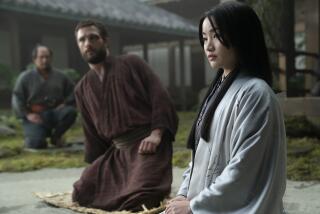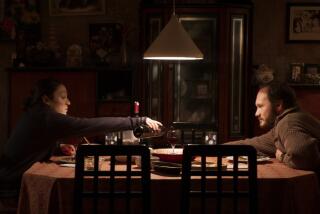Review: ‘Warrior Queen of Jhansi’ traffics in biopic cliches
In the tug-of-war between celebrating a 19th century Indian feminist freedom fighter and wrangling the overwrought tropes of countless period epics, director/co-writer Swati Bhise’s “The Warrior Queen of Jhansi” misses a big opportunity to energize cinema’s all-too-male legion of deified historical heroes.
The Rani, played by Bhise’s daughter Devika (who also co-wrote the screenplay), was only in her 20s when she led an armed rebellion against Britain’s cruel and rapacious East India Company. It wasn’t even her first taste of battle, and it gave her an iconic, Joan of Arc-like status in India’s long road to independence.
But as dramatized, “The Warrior Queen” takes all the biopic shortcuts (narration, sped-up timeline, ham-fisted exposition) only to get to a depiction of the drumbeat to conflict that traffics in platitudes and clichés. Strategy-talking scenes between Rupert Everett as a weary British army officer and Nathaniel Parker as a snarling, racist Company man are laughably mustache-twirling, while the Rani is treated with sisterhood talking points and battle cries in lieu of characterization.
Bhise plays everything at the mytho-historical level, with dialogue more like nuggets of research (white-haired British men saying things sush as, “We’ve succeeded in the past by keeping the Indians divided”) than anything real humans would utter. The battle choreography is likewise more haphazard than stirring. Will you be eager to learn more about this fierce “Warrior Queen” afterward? Yes. Will it be because you sensed more there than was melodramatically delivered? Probably.
'The Warrior Queen of Jhansi'
Rated: R for some violence
Running time: 1 hour, 43 minutes
Playing: Starts Nov. 15 in general release
More to Read
Only good movies
Get the Indie Focus newsletter, Mark Olsen's weekly guide to the world of cinema.
You may occasionally receive promotional content from the Los Angeles Times.






